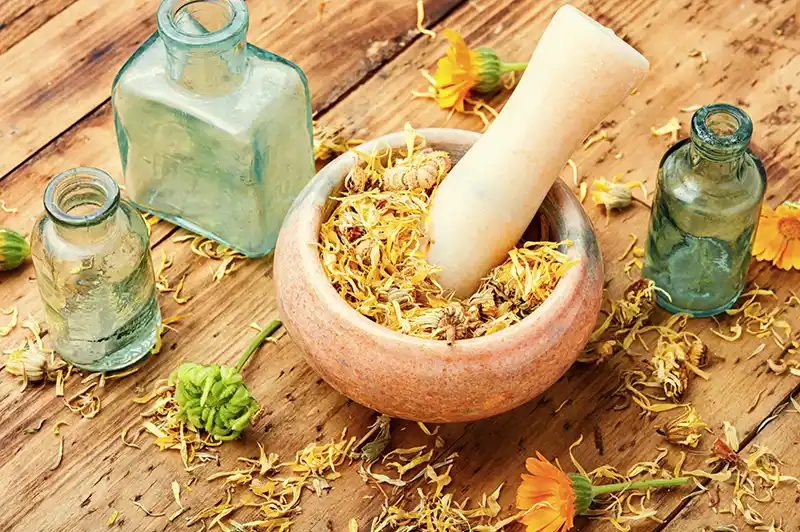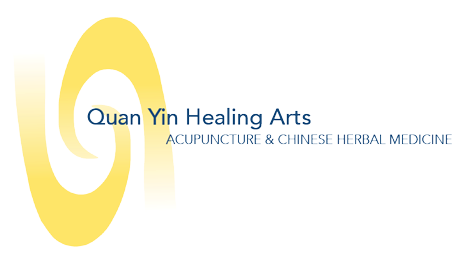Chinese Herbal Medicine
Chinese herbal medicine uses herbs to improve health and has been used in Asian countries for centuries.
While acupuncture is very good at moving qi and blood to restore balance when stagnation is causing havoc on the body, sometimes a person’s constitution and condition require adding something to achieve a harmonious balance.
For instance, if a person is anemic, or in the language of Chinese medicine, displaying signs of blood deficiency; with fatigue, lightheadedness, weakness, floaters, and /or a headache at the top of the head; the best course of action would be to supplement the body with nourishing foods and herbs that help the body to build blood.
But not only that, the reason the person is blood deficient should be determined and corrected. If there is excessive bleeding, that issue has to be addressed. If nourishment is poor, that issue has to be addressed, and so on.
 Differences between Western herbs and Chinese herbal medicine
Differences between Western herbs and Chinese herbal medicine
Unlike western herbs, Chinese herbs aren’t used to treat symptoms and diseases. Instead, they treat the whole person, including the patterns of symptoms the person presents.
While each herb in the Chinese medicine pharmacopeia has specific functions, the herbs are rarely used alone. Instead, they are used in formulas to address each piece of a person’s pattern and constitution and the way the symptoms affect the person in the environment of who they are.
In this way, side effects can be minimized or avoided altogether.
Chinese herbal medicine is very sophisticated, with more than 400 medicinal substances, including roots, leaves, bark, fruits, seeds, shells, resins, minerals, and animal products.
There are formulas or recipes of herbs that have been documented and used for over 2000 years. These recipes give the herbalist a framework to begin with when addressing a patient’s issues. We then use the information from the patient health interview to adjust the formula to perfectly match the patient’s unique presentation.
Herbs can be prescribed in several different formats
Raw, dried herbs: The most traditional form is raw, dried herbs cooked either by the patient or at the pharmacy into a decoction. This method gives the herbalist the most flexibility in choosing the most beneficial herbs to match a patient’s condition and tends to be the strongest herbal therapy.
Another popular format is formulas that are made from herbs that have been cooked and dried. These are called granular or powdered extracts. They may also be tailored for each patient. This format may be preferable if the patient cannot cook the herbs. All that is required is adding warm water to reconstitute the formula.
Ready-made formulas are also available in pill, tablet, or capsule form. These cannot be tailored to the patient, though good results can often be achieved by combining different ready-made formulas. Cost and convenience are usually a high priority when ready-made formulas are chosen.
For some conditions, including pain and traumatic injury, herbs may be prescribed for external use
- Soaks
- Washes
- Ointments
- Liniments
- Poultices
- Salves
Chinese herbs are very safe when prescribed by a qualified herbalist. We use only reputable distributors of Chinese herbs at Quan Yin Healing Arts. The raw herbal formula prescriptions are filled by Kamwo Herbal Pharmacy, NY, NY, and shipped directly to the patient. Granular extract formulas are manufactured by Kaiser Pharmaceuticals and filled and dispensed by Crane Herb Company in Massachusetts. They are also sent directly to the patient. Please refer to the company websites on the links page for further information about herbal safety procedures.
In addition to a two-month herbal mentorship in a hospital setting in China, Karen has studied with many master herbalists, including Ping Chan (injury and traumatology), Daniel Camburn (fertility and advanced gynecology), and Sharon Weizenbaum (a two-year herbal mentorship program), throughout her over 20 years of practice.
Karen Borla frequently combines acupuncture and Chinese herbal medicine treatments, as they mutually enhance each other for specific conditions. Among the conditions often treated with combined acupuncture and Chinese herbal medicine are infertility, menopausal issues, digestive issues, and the side effects of chemotherapy.

